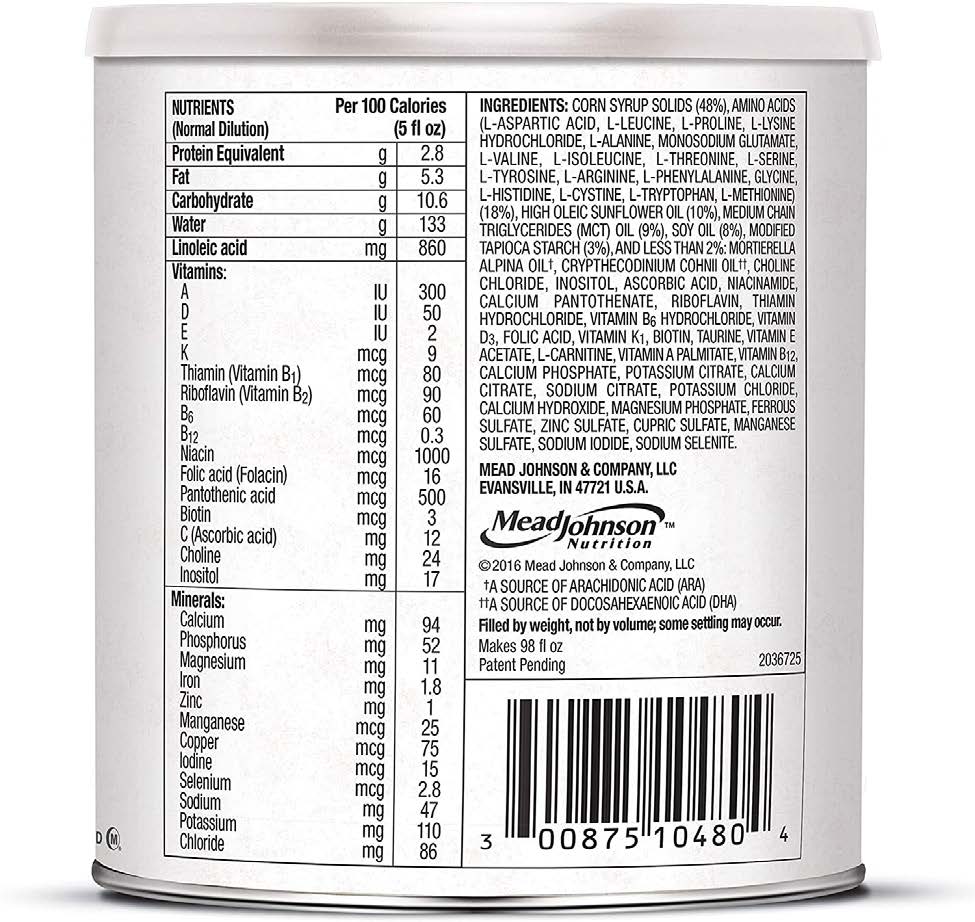FDA urged to stop formula companies from selling sugary drinks as “formula” to toddlers

“Transition formulas” and “toddler milks” violate FDA labeling rules and are not recommended by experts
The Food and Drug Administration should take enforcement action against three prominent infant formula manufacturers for marketing sugary drinks to toddlers up to three years old, according to an enforcement request sent to the agency today. Advocates and researchers from the Center for Science in the Public Interest, UConn Rudd Center, and New York University write that Nestlé, Walmart, and Mead Johnson & Company (makers of the brands Gerber, Parent’s Choice, and Enfamil) violate FDA regulations for infant formula. Such beverages are also not recommended by health experts for toddlers.
“Transition formulas” are milk- and soy-based beverages marketed for both infants (children up to 12 months old) and toddlers (children 12-36 months old). These are a subset of “toddler milks”—powdered beverages typically comprised of powdered milk, vegetable oil, and corn syrup solids or other sources of added sugars, with added nutrients. There is broad consensus among child health authorities that toddler milks are not recommended for young children, as they contribute added sugars to the diet and provide no unique nutrition benefits beyond what can be achieved through a healthy diet of ordinary foods and beverages.
Formula companies push parents and caregivers to buy the sugary, expensive drinks for older ages by touting them as “formula” and recommending them for children over 12 months old. The groups’ letter argues that the named products are out of compliance with FDA regulations for infant formula because they are marketed for children over 12 months old, and because they do not bear FDA’s standard Nutrition Facts label, preventing parents and caregivers from making informed, healthy choices for their toddlers.

Infant formula products are required to bear a special nutrition label that includes additional information on micronutrients beyond the standard Nutrition Facts label but does not include total or added sugars. Companies selling “transition formulas” are trying to position these products as infant formulas for the purposes of nutrition labeling, but as something other than infant formula for the purposes of promotion for an older age group. The letter contends that FDA regulations do not allow them to have it both ways.
The 2020-2025 Dietary Guidelines for Americans recommend avoiding added sugars for children younger than age 2. However, without the Nutrition Facts label, there may be no way of knowing how much added sugar is in a product.
“FDA shouldn’t let formula companies conceal important information about their products, while plastering them with marketing claims,” said CSPI senior science policy associate Eva Greenthal. “It’s time for formula companies to stop hiding the fact that their ‘toddler milk’ and ‘transition formula’ products are just sugary drinks for toddlers.”
“Our research shows that parents are confused about the difference between infant formula and drinks that formula companies market for toddlers,” said Jennifer Harris, senior research advisor at the Rudd Center for Food Policy & Obesity at the University of Connecticut. “Labels on transition formulas and toddler milks make it difficult to differentiate these products from infant formula and mislead consumers to believe these sugar-sweetened toddler drinks are beneficial for young children.”
In July 2020, the organizations sending this letter and 27 other public health professionals and advocacy groups filed a citizen petition calling on FDA to create new rules to regulate these products. In addition to the enforcement letter, today CSPI submitted comments to supplement the petition. The comments emphasize the need for enforcement action and ask the agency for regulations that more clearly distinguish toddler products from formula and allow consumers to better recognize the added sugar content.
# # #
The Center for Science in the Public Interest is America’s food and health watchdog.
The Rudd Center for Food Policy & Obesity at the University of Connecticut is a multidisciplinary center dedicated to promoting solutions to childhood obesity, poor diet, and weight bias through research and policy. The Rudd Center is a leader in building broad-based consensus to change diet and activity patterns by conducting research and educating policy makers.
Tags
Topics
Brands
Contact Info: Contact Jeff Cronin or Richard Adcock.

